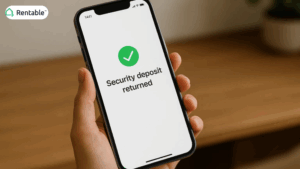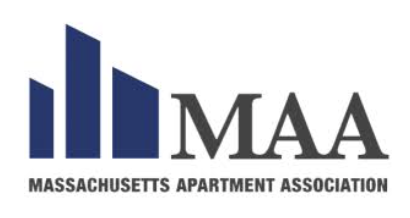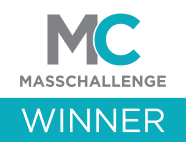The Best Security Deposit Alternative For Property Managers
Security deposits are one of the most outdated parts of the rental process. For property managers, they create friction, slow down leasing, and introduce administrative risk.
For renters, there are often a financial barrier to moving in, requiring large deposits and tying up money that isn’t always available, which can significantly impact renters’ finances.
The good news is that modern alternatives now exist.
From installment plans to deposit coverage tools, there are flexible, legal, and scalable ways to protect rental properties without slowing down the leasing process.
This guide breaks down the best security deposit alternative platforms on the market and how to evaluate them.
What Is a Security Deposit Alternative?
A security deposit alternative is any tool, process, or insurance model that serves as a substitute for a traditional security deposit, which is typically a refundable upfront payment made by tenants to provide financial security for landlords.
Security deposit alternatives work by replacing the need for a large upfront payment with other financial products or payment structures. Renters may pay a non refundable fee or monthly fees, which are paid directly to the service provider and are typically not refunded.
The service or insurance company then guarantees the landlord coverage for damages or unpaid rent, and may pay out claims up to a specific coverage amount or limit as defined in the agreement.
Renters may pay:
- a non refundable fee (paid by the renter and not refunded)
- monthly fees (paid by the renter and not refunded)
- a smaller upfront payment
- an insurance premium
Each product has a specific coverage amount and may have a limit on the maximum payout to the landlord.
Property managers or landlords may require a credit check for qualification. The benefit of these alternatives for landlords includes reduced risk and less administrative burden, as they are protected against potential damages and unpaid rent. These alternatives are often integrated into leases and the lease agreement.
The Problem With Traditional Deposits
Security deposits, while designed to protect property owners, introduce problems across the rental lifecycle:
- With a traditional deposit or cash deposits, renters are often required to pay a full month’s rent or more upfront, with the original deposit amount typically set at one month’s rent. However, this can vary based on limits or a limit set by law, which restricts the maximum deposit a landlord can require. These requirements create significant financial burdens for tenants.
- Landlords, a property management company, or property management companies are responsible for managing these deposits, including handling escrow accounts, calculating interest, and processing refunds accurately to remain compliant.
- Disputes often arise over claims or a claim for damages or unpaid rent, leading to potential conflicts between tenants and landlords or property management companies.
- Understanding the fine print of deposit laws is crucial for compliance, as state laws differ and make compliance harder across multiple jurisdictions.
These issues can negatively impact the overall rental experience for tenants.
How Deposit Alternatives Work
Depending on the product, renters may be required to pay:
- A small non-refundable monthly or one-time fee, typically paid by the renter and often calculated as a percentage of the monthly rent
- A reduced deposit amount paid in installments
- No deposit at all if they meet risk criteria through a credit or bank check
These alternatives are especially useful when moving into a new rental, as they help reduce upfront costs.
For property managers, these tools offer similar or greater protection through third-party backing, digital workflows, and defined payout structures in the event of damages or unpaid rent.
Pros and Cons
For renters:
- Lower financial burden during move-in
- Easier to qualify for housing
- Can save money upfront compared to paying a traditional security deposit
- Makes it easier to secure a new apartment quickly without a large deposit
- Some options require non-refundable fees, increasing long-term cost
- May not receive a deposit refund, which can make it harder to cover costs when moving to your next apartment
For property managers:
- Faster lease-ups and more applicants
- Reduced deposit management overhead
- Need to ensure coverage equals or exceeds traditional models
The Top Security Deposit Alternatives in 2025
The deposit alternative landscape is evolving. Below are leading tools based on protection, usability, and adoption.
Rentable
Rentable truly is one of the best software for property managers this year. Why? It’s security deposit automation and compliance protection for property managers made incredibly easy!
With rentable, streamlining and tracking security deposits has never been easier. Property owners and accounting teams can ensure paybacks are prompt and compliant to State regulations.
Key Features:
- Tracks deposits, deductions, and legal timelines
- Offers deposit splitting and payment plans
- Automates unclaimed property workflows and escheatment compliance
- The only software swith deep integration with existing enterprise PM and accounting platforms like Yardi, Rent Manager and MRI
Pros:
- Reduces legal exposure and admin costs
- Gives property managers full visibility and control
- Helps standardize operations across states
Cons:
- Not directly marketed to renters, so property teams lead adoption
- Best paired with full-stack property management systems
Obligo
Deposit-free living with tenant qualification
Key Features:
- Renters qualify via soft credit pull or bank account link
- Pays property owners directly in case of damages or defaults
- Renters pay a monthly fee or one-time payment instead of a full deposit
Pros:
- Obligo handles all compliance and billing
- Requires no operational lift from property managers
- Strong renter brand recognition drives adoption
Cons:
- Fees are non-refundable, which can lead to confusion
- Coverage levels may vary and require close reading of terms
- Not Built for Compliance: No tooling around interest calculations, escheatment, or refund deadlines.
- PMs Are Not the Customer: Renter-first focus means less customization or support for landlord workflows.
Roost
Roost is an installment-based deposit support with compliance workflows and tons of resources that helps renters.
Key Features:
- Renters pay deposits in monthly installments
- Property managers receive full coverage upfront
- Refunds and compliance handled through automation
Pros:
- Preserves deposit protections while easing renter burden
- Reduces refund errors and deadline risks
- Encourages better move-out behavior with education features
Cons:
- Still Requires Full Deposit: Renters still owe full deposit over time
- Requires clear communication to avoid misinterpretation
- Weaker Tech Stack: Limited integrations and clunky onboarding for PM teams.
- Limited Scale & Support: Not built for large portfolios or national operators with complex state requirements.
Whale
Tech-forward savings and tracking model for deposits and mostly focusing on helping renters grow wealth with comprehensive digital wallets for security deposits.
Key Features:
- Renters can save toward deposits in advance
- Digital tracking of deposit amount, interest, and refund deadlines
- Offers visibility into move-in and move-out financials
Pros:
- Improves financial literacy and transparency
- Reduces disputes through clear deposit history
- Low-cost tool that integrates into renter journey
Cons:
- Doesn’t replace deposits, only makes them easier
- Property managers still hold funds and bear legal risk
- No Compliance Features: No tracking of refunds, interest, or state requirements.
- Doesn’t Solve PM Pain: Property managers still manage deposits, refunds, and legal risk.
- Consumer-Only Model: No property owner dashboard or leasing integration.
- Only has surface-level integratino to Yardi
Resident Radius
A hybrid deposit replacement and refund automation platform focused on propery owners.
Key Features:
- Enables full or partial deposit waivers
- Integrates with state laws for accurate refund timing
- Works across different property management systems
Pros:
- Flexible structure adapts to various markets
- Reduces errors related to state-specific refund timelines
- Gives renters options, including coverage or reduced deposits
Cons:
-
Manual-Like Workflow: Requires setup and hands-on use for results.
-
Not Plug-and-Play: Requires development or workflow workarounds to implement effectively.
- No deep integration Yardi, no other integration

 with top enterprise PM software.
with top enterprise PM software.
Rhino
A widely adopted security deposit alternative that replaces traditional cash deposits with a surety bond model.
Key Features:
-
Allows renters to pay a small monthly fee instead of a full deposit
-
Provides property owners with coverage for damages or unpaid rent
-
Integrates with select leasing and property management systems
Pros:
-
Removes upfront deposit barrier, accelerating lease-ups
-
Popular with renters due to low initial costs and high awareness
-
Requires minimal operational lift for leasing teams
Cons:
-
Non-refundable model may create renter confusion or dissatisfaction
-
Limited compliance tooling for state-specific deposit laws
-
Less control for property managers in how claims are handled
- no enterprise CRM integration
Benefits of Offering a Deposit Alternative as a Property Manager
Faster Lease-Ups
By reducing upfront costs, you expand your qualified applicant pool. Renters who cannot pay a full deposit upfront may still pass screening and be a good fit for your properties.
Better Cash Flow and Retention
Renters are less likely to delay move-in or skip payments when their initial financial burden is lower. Monthly payment options or waived deposits can improve rent payment consistency.
Reduced Operational Overhead
Automated tools remove the need for manual deposit logging, interest calculations, and refund paperwork. This saves time across leasing and accounting teams.
Legal and Compliance Support
Many tools help property managers avoid escheatment risk and missed refund deadlines. With growing state-level deposit regulation, automation helps avoid fines and tenant disputes.
What to Watch For: Fees, Refundability, and Coverage
Before you commit to any deposit alternative, always read the fine print of the security deposit alternative agreement to fully understand your obligations and any hidden fees.
- Refundability: Is the fee a non refundable fee, or are there monthly fees that must be paid by the renter? Renters must know whether they’re getting anything back or if all payments are non-refundable.
- Coverage: Check the coverage amount and any limit on payouts. Ensure the provider protects your property from unpaid rent or damages to at least the same level as your standard deposit, and understand the maximum financial liability.
- Compliance: Make sure you fully understand the terms of the security deposit alternative agreement and that the provider complies with your state’s deposit laws. If not, you still carry the liability.
In the event of damages or unpaid rent, a claim can be filed by the landlord. The service may pay the claim up front and then seek reimbursement from the tenant, so it’s important to know how the claim process works.
Why Rentable Is Different
Rentable isn’t a renter-facing deposit replacement tool. It’s a property manager-first automation platform built to solve the real pain: managing deposits legally and efficiently.
Key Strengths:
- Allows installment plans or traditional deposits based on market needs
- Tracks refund deadlines and automates compliance
- Prevents escheatment with timely refund workflows
- Integrates with your current leasing stack for minimal disruption
Property managers get compliance protection. Renters get flexibility. Everyone avoids the deposit drama.
How to Choose the Right Deposit Model
Start by assessing your risk tolerance and operational structure:
- Are your owners open to alternatives or strict on deposits?
- Do your renters typically need financial flexibility?
- Are you operating across multiple legal jurisdictions?
- Can your team manage additional education or integrations?
The right model balances legal protection, speed to lease, and the overall rental experience for tenants.
Final Thoughts
Security deposit alternatives are not just about removing costs. They’re about modernizing your leasing workflow, improving transparency, and reducing the friction that slows growth.
Choose tools that serve your business, protect your properties, and meet the expectations of today’s renters.
Want to learn how Rentable can help you manage deposits with less risk? Request a demo or explore our integrations.







